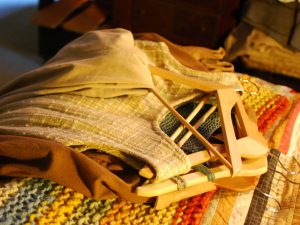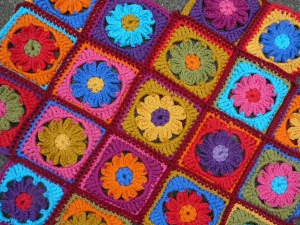Keen to repair your clothes? You’re not alone! We hear from the team at Ethical.net about the growing mending movement challenging fast fashion.
Happily, if you don’t want to buy new stuff — even the kind that lasts a lifetime — you can repair and prolong the life of your beloved clothes.
I’ve seen too many perfectly good jackets thrown away just because the zip wasn’t working. That very jacket was the result of large amounts of energy put into its production and distribution, with materials most likely “harvested” from various parts of the globe.
Have we really forgotten what it means to repair?
Kurt Vonnegut said it best: “Another flaw in the human character is that everybody wants to build, and nobody wants to do maintenance”. It can be applied to the production of pretty much everything, where we’ve ended up making poor quality products, piling them high and selling them cheap, rather than creating quality products that last longer and can be easily maintained, mended, fixed, darned…

Childhood mend-mories
In my childhood — just a few decades ago — it was inconceivable to throw away a piece of clothing before it became beyond repair. I grew up wearing my elder siblings’ clothes and it made perfect sense. This inter-generational swap turned clothes into well-loved and valuable items squeezed for years for every fibre and ounce of life, until the colours would fade away along with the worn-out heart shaped patches.
My grandmothers would take pride in their mending skills and Singer sewing machines. In the last few decades, with so many cheap clothes flooding the world, there was a general feeling that mending was a dying habit. Still popular in many countries, mending is now finding its way back into societies like ours that guzzle fast fashion down at a worrying rate.
It won’t stop mending, repair, and clothing alterations shops and tailors from disappearing off the map of independent businesses, but the corner knitting associations, bloggers and charities are making sure they bring mending back. It might be nostalgia too, but it’s also the best way individuals can fight back, showing the fashion industry that it needs to change its ways now, before it’s too late.
Meet the menders, darners and fixers
Yes, they exist and sometimes even thrive. If mending is not your cup of tea, chances are you are within walking distance of someone willing to fix your favourite sweater for a fee or for free.
For instance, in Brighton, UK, we discovered The Visible Mending Programme run by Tom van Deijnen, “a self-taught textiles practitioner” working mostly in wool. It’s a personal exploration of traditional techniques for creating and repairing textiles. Have a look.
Some people not only make their clothes from scratch, they also blog about it. This is the kind of DIY achievement that encourages you to share and spread the good deed. Check out “devout yarnophile and knitting enabler” Karen Templer and her Fringe Association blog to find out why she makes her own clothes. Knowing where they come from and it simply being fun are high on her list of priorities.

There are books too. Take for instance Mending Matters: Stitch, Patch, and Repair Your Favorite Denim & More published this autumn. The book contains how-to projects, essays on slow fashion, the author’s fashion fast, and other such treats.
Look in the unlikely places too, like the Zero Waste Chef. Her main focus is cooking waste-free, but her new posts on bags made out of old clothes and leftover materials are a joy to see and, most likely, use. She’ll even teach you how to sew a bento bag.
It’s OK to be in fashion. You own fashion.
A consumerist society that constantly tells you to be up to date and on trend has no interest in also asking you to be careful where and how you invest. Occasionally, the brands tag washing and drying directions on your clothing, but they’ll hardly ever encourage you to put thread and needle to good use. That needle might bring more benefits than you bargained for.
So, spread your wings and find the inspiring mending project near you. Or even better: start one. Good luck!
Find the original post here, as written by Anca at ethical.net, a collaborative platform for discovering and sharing ethical alternatives, whether purchasing from a social enterprise, thrift shopping, or learning how to fix your old phone instead of buying a new one.







2 Comments
Hi Sarah
I am so thrilled that there are others out who think like me, I always wear my clothes down to the nub having mended them many, many times, I sometimes look a bit tatty round the edges but I don’t care, I know that I am helping save our wonderful planet. Unfortunately my skills in sewing and knitting aren’t great, but I keep on plugging away. I feel a bit of a fraud sometimes as my Nanna was the most exquisite knitter, tailoress and milliner sadly I didn’t inherit any of these skill, I am hoping to make my own clothes, past experience hasn’t proved good and there are dearth of classes showing making clothes from the beginning, I have tried watching youtube but they usually go to fast and I get flustered.
Thanks so much for this post, I am going to look into the other people mentioned in it.
Ann
Thank you so much for the kind words! Yes, I’m happy with my worn-out clothes too. They come with stories in attach, but indeed, their low impact is the true gift 🙂
All the best,
Anca